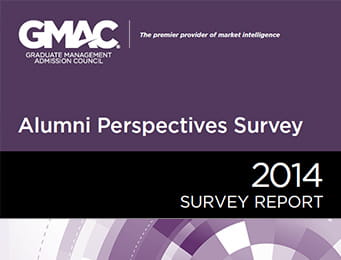Can A Sub-700 GMAT Take You Out?
Poets and Quants ran an article, "Can a Sub-700 Take You Out?" that read: "A score of 700 on the GMAT just isn't worth what is used to be. A comparison of the average scores at leading U.S. business schools with ten years ago shows that with the exception of Stanford University’s Graduate School of Business and the University of Pennsylvania’s Wharton School, you’d be within 10 points of the top 7 schools, and ahead of the game for the rest of the top 20.
And while breaking the 700 barrier back in 2003 would secure you a place in the top 92% of test takers, the same score today means you have scored in the top 89%.
It's this kind of perverse logic that corrupts the MBA as a degree.
Just look at the numbers: (1) top school report average GMAT scores, so even schools with a 700 avg. admit good students with less than a 700 score; (2) not all top 20 programmes average 700 (e.g., from QS TopMBA #6 Columbia 670, #8 Rotman 673 & #16 HEC 630); (3) the term "doomed" implies that you cannot get a good education from programmes outside the top twenty.
Here's an except from the most recent QS TOPMBA Global 200 report: "The top three schools are ...the strongest in terms of students’ average GMAT scores, suggesting that there is a close match between the perceptions of employers and the best qualified MBA students. However, the correlation is far less precise beyond the leading three. ...Columbia, Rotman and Fuqua all make the top ten for employer recognition yet have average GMAT scores of under 700."
Note: The correlation between programme reputation and GMAT score is loose at best; QS equates GMAT score to "best qualified MBA student" (a fallacy); and the average GMAT score in the QS Global 200 was 632 (We're talking about a few points! Not evident from the quote).
Even more interesting is that GMAC's own data show an inverse relationship between GMAT score & age, as well as discrimination against females.
(1) The highest test scores (by age category) were posted by students of less than twenty years of age: kids. Males of this age averaged 604, while females averaged 597 (though this demographic accounted for only 0.6 % of test takers).
(2) Test scores drop precipitously for both males and females: i.e., inversely correlated with age and presumably attributes associated with age, such as experience, maturity and wisdom. Females: age 20-21 (avg. 572); 24-25 (528); 31-34 (504); 40-49 (449). Women over the age of 21 years averaged less than a 550 score and would likely be excluded from many top MBA programmes.
(3) The number of woman sitting for the GMAT dropped precipitously after the age of 23 years: age 22-23 (N=27K); 24-25 (17K); 26-27 (12K); ... 31-34 (6K).
(4) Women consistently posted lower average test scores within age categories, oftentimes with meaningful differences (e.g., age 26-27: male avg. 571 vs. female avg. 533).
(5) Three countries, the U.S., India and China, accounted for 71% of all GMAT tests taken in the world, with the U.S. accounting for over 90K (of 238K) test takers. India (577) and China (582) significantly outperformed the U.S. (532) on average.
This last observation from the data suggests that the GMAT is largely a U.S convention valued most by those wanting to study in the U.S. and not valued as highly across the globe.
(see Observations on the GMAT)







